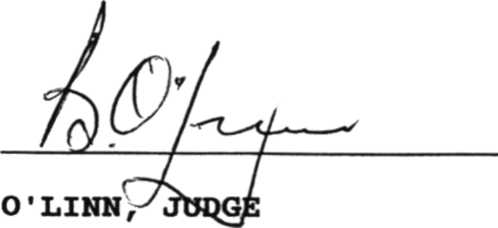A 254/93
SOCIEDADE ANGOLANA DE COMERCIA INTERNACIONAL LIMITADE (SACILDA) vs J A GROUP HOLDINGS (PTY) LTD
O'LINN, J
COMPANY LAW
1994/02/08
![]()
Twenty one (21) days notice not required for "special business" resolutions at general meetings, but only fourteen (14) days.
The chairman had a casting vote at general meetings where voting on resolutions relating to special business is by show of hands.
Sale or intended sale of assets by directorate cannot be said to be "not in the ordinary course of business" merely because the sale or intended sale takes place when a petition for winding up on the ground of "dead lock between the directors" is pending before the Court or because the directors sell or contemplate to sell certain assets, but these assets are not the whole or substantially the whole of the undertaking or the whole or the greater part of the assets of the company.
A resolution at a general meeting for the sale of such assets by the directorate is not required and is superfluous.
CASE NO. A254/93
IN THE HIGH COURT OF NAMIBIA
In the matter between SOCIEDADE ANGOLANA DE COMERCIA
INTERNACIONAL LIMITADE (SACILDA) APPLICANT
versus
J A GROUP HOLDINGS (PTY) LTD RESPONDENT
CORAM: O'LINN, J.
Heard on: 1993/12/13,15 Delivered on: 1994/02/08
JUDGMENT
O'LINN, J. : On 15th December 1993 this Court dismissed an application by the applicant brought on the basis of urgency for the following relief:
"1. That this application be treated as urgent in terms of the provisions of Rule 6(12)(b).
2. That a rule nisi be issued calling upon the Respondent to show cause on or about 7 March 1994 why an order in the following terms should not be made final:
2.1 That a declaratory order be issued in terms of which it is declared that the general meeting of shareholders of the Respondent held on 13 December 1993 and any resolution purported to be taken thereat, be declared null and void;
That the Respondent be interdicted from disposing of any of the assets of the Respondent otherwise than in the ordinary course of business, pending finalisation of the application for liquidation of the Respondent on 7 March 1994;
That the Respondent be ordered to pay the costs of this application.
That prayers 2.1 and 2.2 shall act as interim relief pending the return date of this application.
That such further and/or alternative as the Court may deem fit, be granted to the Applicant."
At the hearing Mr Mouton appeared for the applicant and Mr Coleman for the respondent.
Reasons were not given for the Court' s order on 15th December or since.
The applicant filed a request for reasons on the 4th January 1994.
The request for reasons appears to be out of time. I have nevertheless decided to condone the late filing of the request and decided to provide brief reasons for my decision on the 15th December 1993.
Mr Mouton and Mr Coleman argued the matter thoroughly and I am indebted to them for their valuable assistance.
I will now deal shortly with the grounds relied on by applicant.
1.1 "21 days notice were required and this was
not complied with."
Only 14 days notice was required because the meeting was a general meeting for "special business" provided for in article 34 of the memorandum of articles of respondent company and not for a "special resolution".
The applicant was not even entitled to any notice because it had not supplied the respondent company with an address within the Republic of South Africa (or Namibia) for the giving of notice as provided for by article 99 of the memorandum of articles.
1.2 "The notice did not contain sufficient
particularity to enable the applicant to
decide how to respond."
The applicant however did attend through its proxy Adv. Ellis as well as its attorney Jacobs.
Precisely what transpired at the meeting is not clear from the papers and the affidavit of attorney Jacobs on behalf of applicant was contradicted by that of respondent.
I am not persuaded that the applicant did not, alternatively could not, obtain all the required information at the meeting.
The voting on the resolution proposed by the majority shareholder, Mr Augusto, who also acted as chairman, was by the holding up of hands.
Even though there was an equality of votes, the chairman had a casting vote and in that manner there was a majority of 2-1 in favour of the proposed resolution.
1.3 "The sale and/or intended sale of assets was not in the ordinary course of business because an application for winding up on the ground of deadlock was pending and because the company was unable to pay its debts."
An application for winding up on the ground of "deadlock in the management" set down for 7th March 1994, is not per se a bar to the sale of assets of the company.
There was no evidence, certainly no prima facie proof produced by applicant, that the respondent company was unable to pay its debts.
The directors were also not contemplating selling the whole or substantially the whole of the undertaking of the company or the whole or the greater part of the assets of the company and thus did not and do not intend to act in contravention of section 228 of the Companies Act.
The directors have wide powers in terms of article 60 and 61 of the memorandum of articles which authorize them to sell assets such as those proposed in the resolution, without calling any general meeting to pass a resolution authorizing them.
The resolution passed at the general meeting was therefore superfluous.
1.4 "Applicant and/or creditors will be severely
prejudiced if the alleged disposal of assets are allowed."
No proof was produced that this would be the case.
1.5 "The hearing is extremely urgent."
No urgency was proved in the circumstances already set out supra.

FOR THE APPLICANT MR C J MOUTON
FOR THE DEFENDANT
MR G COLEMAN